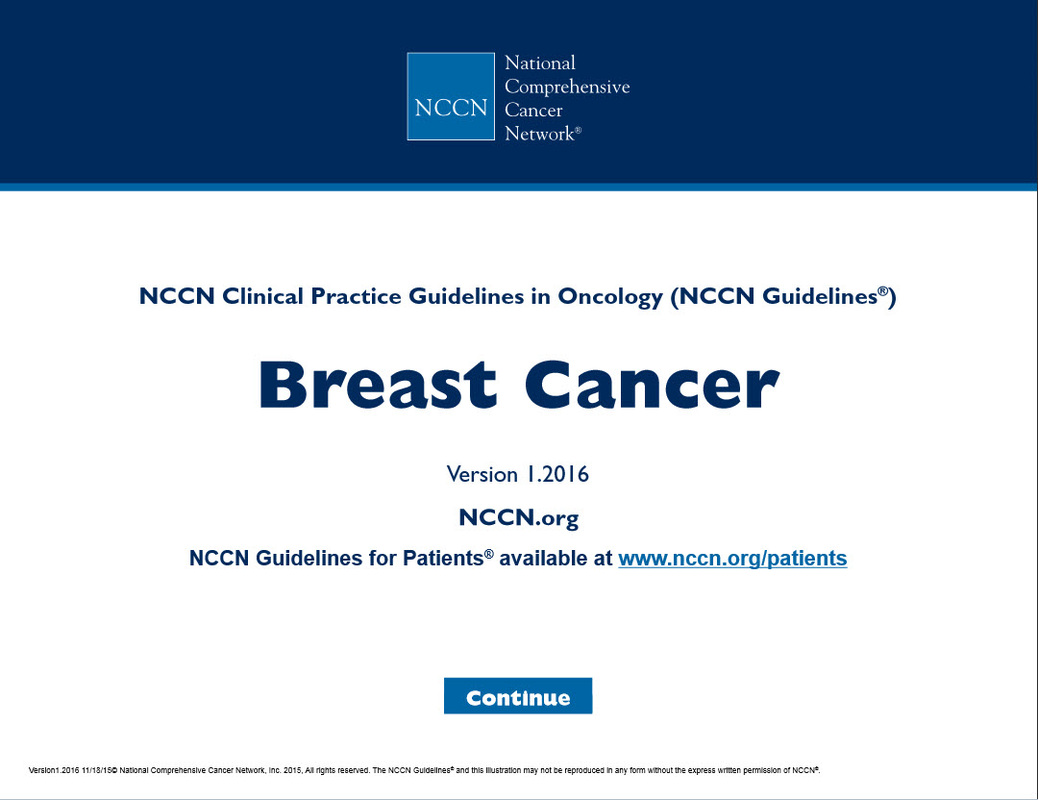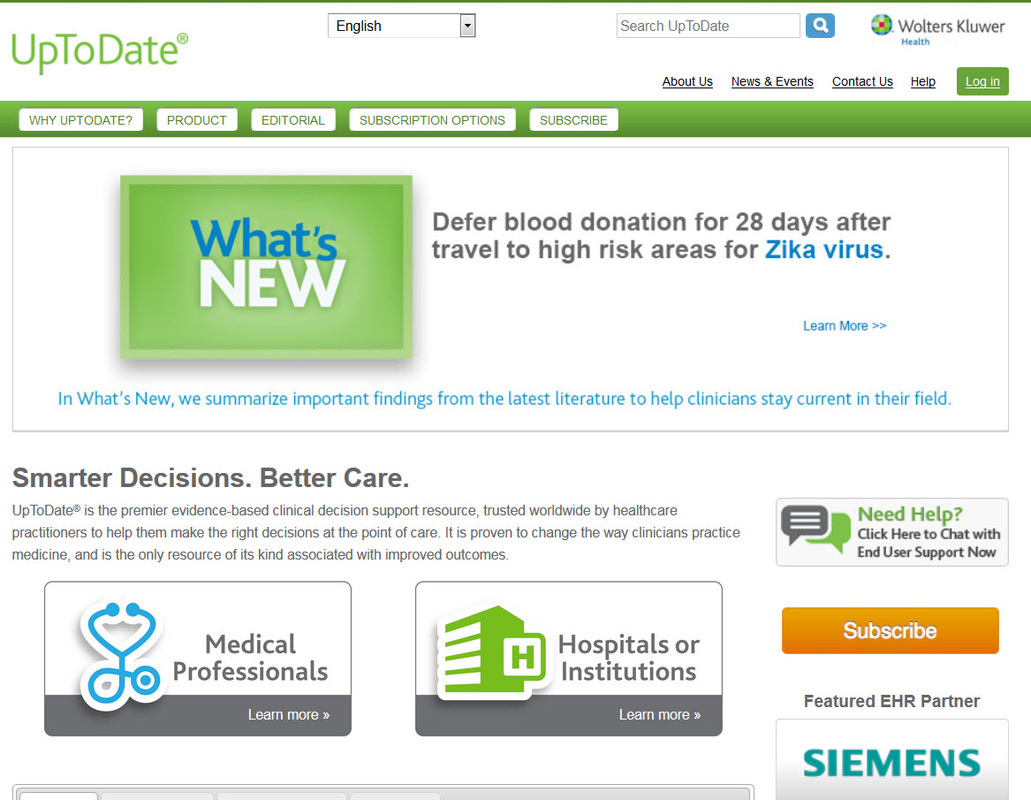|
Here are some of the questions: "If you are diagnosed with Her2 positive breast cancer, can you receive the herceptin without having chemo or do they need to go hand in hand?" "Do you have a link to the latest information for BRCA2 positive patients?" Going Beyond Patient Information Websites If patient information websites don't provide enough information, the solution is to go where doctors look. There are websites geared toward doctors, and they provide detailed information that we use in day-to-day practice. As a patient, you can access these websites as well. These websites do use medical terms, so you'll probably need to use a medical dictionary to help. Make sure you read the basic patient information websites first, so you have a good background before starting. 1. NCCN Guidelines for Physicians
The NCCN guidelines also cover cancer prevention, hereditary cancers (like the BRCA2 question above), and supportive care for symptoms like nausea, pain and fatigue. 2. UpToDate
Many physicians rely on UpToDate daily to help with their medical practice. If someone asks me a medical question and I don't know the answer, it's the first place I look. In my experience, it's the best medical knowledge tool available. The downside to UpToDate is that it's not free. Physicians (including me) who want to use it pay for an annual subscription. Patients can access some specific patient information for free. Fortunately, UpToDate offers short term subscriptions of 1 week or 1 month, so you can get the information you need without having to pay the price that doctors pay for an annual subscription. If you're not sure whether UpToDate will be helpful, you can search the database for free, and only buy a short subscription once you find something useful. [Note that I receive no royalties from UpToDate. I pay for an annual membership. The price is steep but it makes a big difference in clinical practice.] 3. Your Doctor
Comments are closed.
|




 RSS Feed
RSS Feed